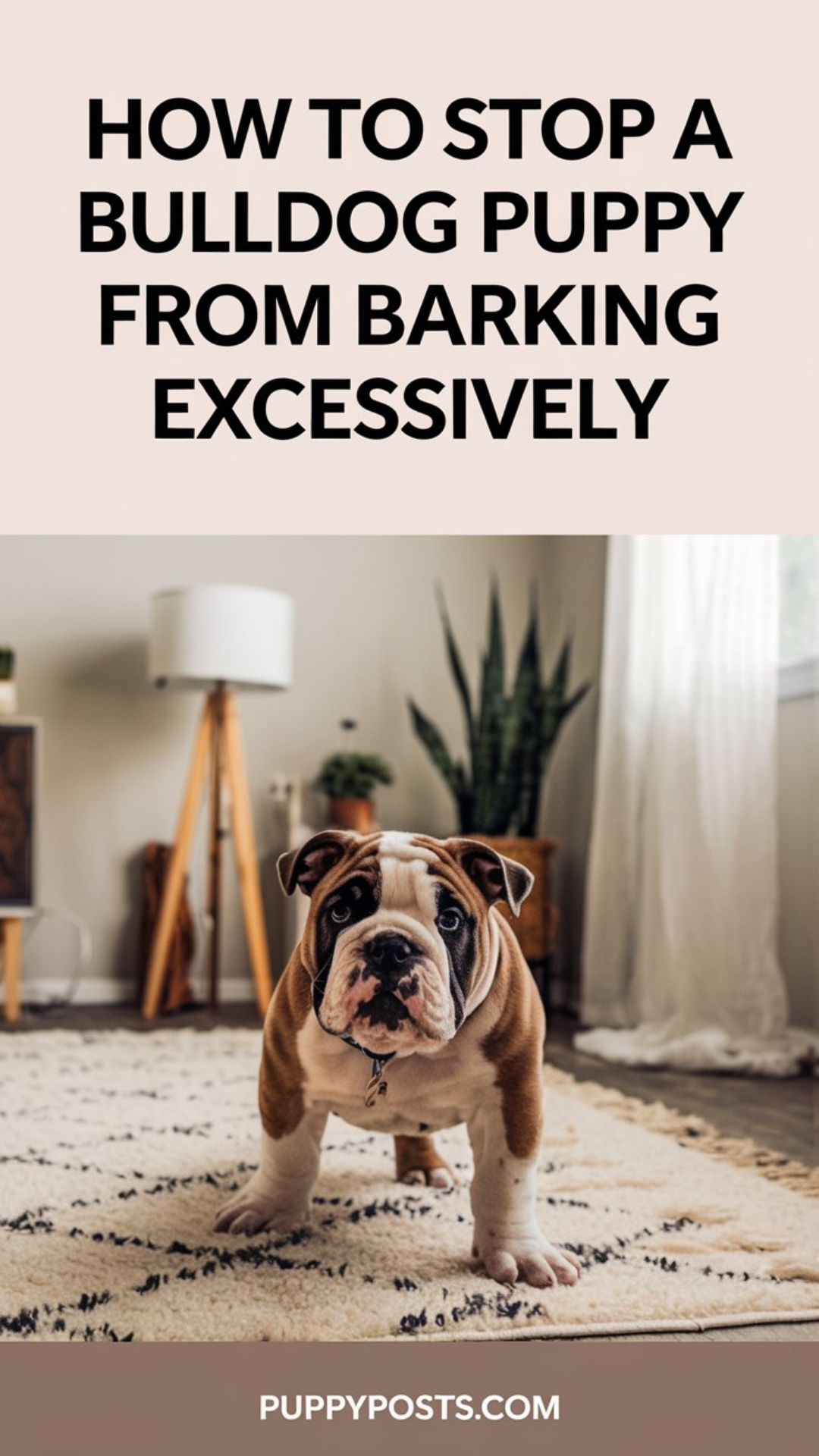How to stop a Bulldog puppy from barking excessively
Listen up — a Bulldog puppy barking nonstop isn’t just a nuisance. It’s a sign you need to step up and take control. If you let it slide, you’ll have a full-grown dog who thinks barking is their job. That’s on you. I’ve seen plenty of Bulldogs come through my sanctuary who learned bad habits early. You don’t want that. So here’s how to handle it, straight and simple.

Understand Why Your Bulldog Puppy Is Barking
First things first — barking is their way of talking. It’s not random noise. Your puppy barks because they want something: attention, food, play, or because they’re anxious or bored. You need to figure out the cause before you fix the problem.
- Are they bored or understimulated?
- Are they scared or anxious?
- Are they alerting you to something?
- Are they seeking attention because they learned it works?
Pinpoint the why, and you’re halfway home.
Set Boundaries Early — No Barking for Attention
Here’s the bottom line: Don’t reward barking. If your puppy barks and you shout, pet, or give treats, you’re telling them, “Yeah, keep barking.” That’s backward.
- Ignore the barking if it’s for attention.
- Only give your puppy attention when they’re quiet.
- Use a calm, firm voice to say “Quiet” once, and if they stop, reward immediately.
- If barking continues, walk away or turn your back.
You’re teaching them that barking doesn’t get what they want, silence does.
Keep Your Bulldog Puppy Busy
A tired dog is a quiet dog. Bulldogs have lots of energy in puppyhood, so if they don’t get enough exercise and mental stimulation, expect barking.
- Give your puppy daily play sessions and walks.
- Use puzzle toys and chew toys to keep them busy.
- Practice basic training commands to engage their mind.
The more you wear them out, the less they’ll bark to burn off energy.
Don’t Encourage Fear or Anxiety Barking
If your Bulldog puppy barks at noises, strangers, or other dogs, it’s often fear or insecurity. You’ve got to desensitize them.
- Gradually expose your puppy to what triggers barking.
- Pair exposure with treats and calm praise.
- Don’t punish fear barking—that just increases anxiety.
- Be patient and consistent.
Your puppy needs to learn that the world isn’t scary—and barking won’t keep danger away.
Teach the “Quiet” Command
Train your Bulldog puppy to stop barking on command:
- Wait for your puppy to bark once or twice.
- Calmly say “Quiet.”
- If they stop barking, immediately reward with a treat.
- Repeat often, practice in different settings.
This teaches control and builds good communication between you and your dog.
Create a Calm Environment
Puppies pick up on your energy. If your home is chaotic, they’ll be on edge and bark more.
- Keep your home calm and predictable.
- Avoid overstimulating your puppy before bedtime or rest time.
- Provide a safe, quiet space for your Bulldog puppy to relax.
A calm dog is less likely to bark excessively.
Be Consistent—No Exceptions
This is not a one-time fix. If you let barking slide “just this once,” you’re undoing all your hard work.
- Everyone in the household must follow the same rules.
- Stay patient but firm.
- Remember: Consistency builds habits.
When to Call a Professional
If your Bulldog puppy’s barking is stubborn or tied to anxiety you can’t manage, consult a certified trainer or behaviorist. Sometimes, professional help makes all the difference.
Final Word from the Vet
Bulldogs are vocal when they want to be, but it’s your job to teach them when barking is okay and when it’s not. You want a quiet companion, not a neighborhood alarm system.
Take control now. Stay firm. Stay calm. And show your Bulldog puppy who’s boss—with a New Jersey no-nonsense attitude.







